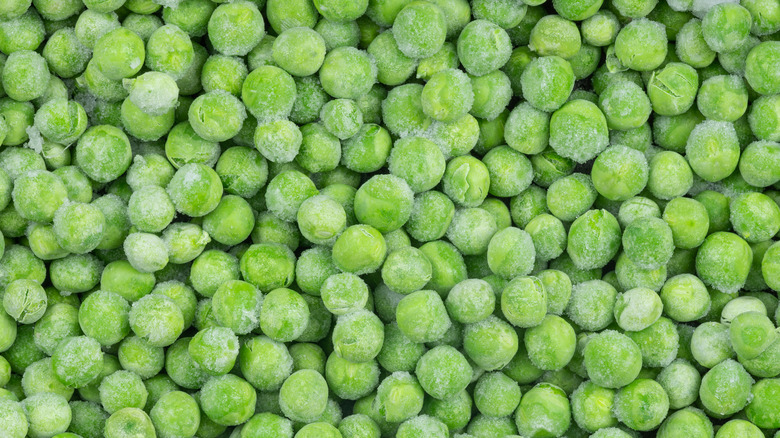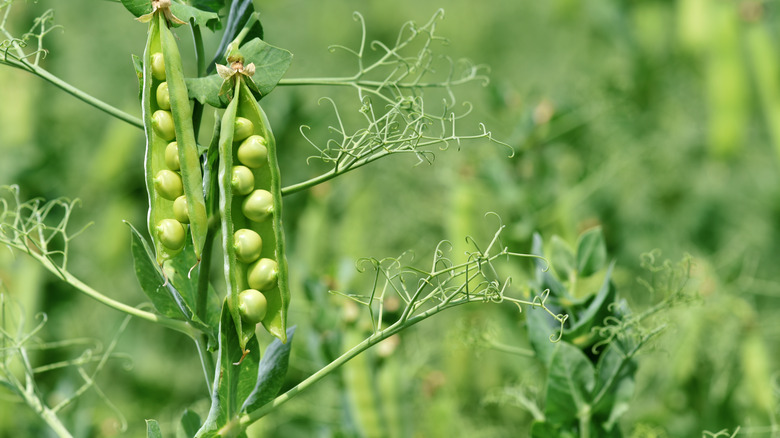The Textural Reason Frozen Peas Are A Better Buy Than Fresh
Frozen food gets a bad rap. While it's true that some frozen meals are chock-full of sodium, saturated fat, and starch, you may be surprised to discover that this isn't the case for all frozen foods when carefully considering their labels and ingredients (via Cleveland Clinic).
Fruits and vegetables often fall into the latter category — not only are they typically cheaper than the fresh versions, but research has shown that frozen produce may even have more nutritional content, according to Healthline. Considering that you don't have to worry about frozen food going bad as quickly as fresh, buying your fruits and veggies this way can be a win-win.
Take spinach, for example. CNBC shares that the amount of folate in a bag of spinach decreases after it's been left in the fridge for a week, while the frozen version has four times the amount of iron, vitamin C, and calcium in each cup. Blueberries, green beans, and broccoli are among the healthiest frozen foods, although you'll want to look for organic, free-range, and wild-caught frozen produce, per Good to Know. And while peas make it to the list of best foods to buy frozen too, there's a reason to buy them out of the freezer section that goes beyond their nutritional value.
Frozen peas retain their moisture and texture for longer than fresh peas
According to CNBC, peas are an ideal food to buy frozen, as it can be exhausting to shell a whole bowl of fresh peas. The veggies also have plenty of fiber and protein, which stay intact when they're frozen. However, buying frozen peas is also the best way to ensure you're getting them at their best. Food & Wine states that fresh peas can lose their flavor and texture pretty quickly after being picked because the sugars in the veggies turn to starch.
This happens even faster than you'd think. The Exploratorium notes that fresh peas can lose moisture and more than a quarter of their sugar after sitting out on the counter for just one day. The sugars change into carbohydrates and causing the sweet, succulent peas to turn dry and wrinkly. You'll need to eat them fairly quickly, too, since peas only last up to a week in the fridge; however, if frozen, they'll be good for up to a year (via Cully's Kitchen).
Not only are frozen peas more convenient and usually higher quality than fresh ones, but they're incredibly easy to cook with. Per Bon Appétit, you can usually toss them in whatever you're cooking as-is with no thawing needed, or you can defrost and mash them for a creamy toast topping. So when it comes to the decision of fresh or frozen, do yourself a favor and look to the frozen section first when buying peas.

